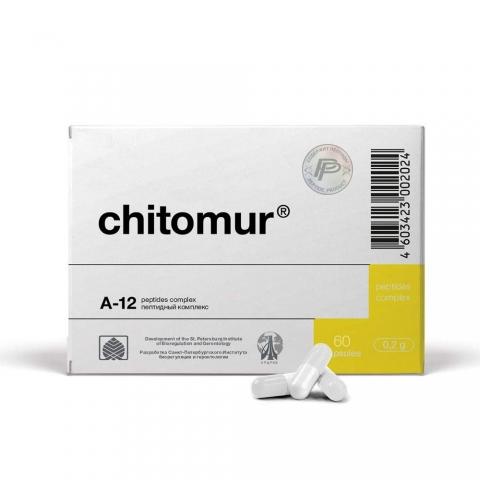Where is the bladder located?
The bladder is located inside a person's lower belly area, beneath the liver. It's about 2-2½ inches long and 1-1½ inches wide. The wall of the bladder should be very thin to hold urine, but it can stretch up to 1 or 2 cups of liquid when full.
What does it do?
The main job of the bladder is to store urine that comes from the kidneys until someone can get to a bathroom. When ready, muscles in the pelvic floor contract and force urine out "automatically" (without thinking).
What causes bladder infections?
Bladder infections (also called UTIs) are caused by bacteria that normally live in the bladder and urinary tract. However, if the bacteria spill into the urine, you can get sick from them. Infections are more common in girls and women because their openings to the outside are closer to the rectal area where germs can be picked up. Girls with a persistent (long-lasting) infection should see a doctor. Like all infections, bladder infections need to be treated right away to prevent a more serious infection or illness.
How do they get rid of it?
A doctor may prescribe antibiotics for bladder infections that won't go away after treatment with home remedies or frequent visits to the bathroom.
How to empty your bladder completely?
Follow these tips to empty your bladder completely:
1. Use the bathroom a few times a day.
2. If you have to go poo, hold it until you are finished. This helps prevent smells that could cause an infection.
3. Don't flush or hooch if you can't hold it any longer. If the toilet is full and your system can't hold anymore, try sitting down on the toilet and straining to let out as much as possible, then remain seated until you feel better and have used all that is in your bladder. This technique will help you get rid of all your urine!
4. If you must urinate when you are not at your destination, take the time to urinate before you start moving again.
How to prevent bladder infections?
1. Keep hydrated by drinking plenty of fluids (water, milk, juice or non-caffeinated drinks like coffee) throughout the day. Fluids will also help prevent constipation and may help some people who are prone to urinary tract infections. 2. Prevent a urinary tract infection by staying away from germs, especially common cold viruses like those from coughs or sneezes. 3. Don't wear tight underpants that could bring germs up near your urethra (the tube that empties pee out of your urethra).
4. Wear cotton underpants and change often.
5. If you are a woman or have a condition that causes leakage from your vagina, talk to your doctor about using special pads that absorb urine and not letting it come in contact with the vaginal area. 6. If you are a woman, wipe from front to back after urinating or a bowel movement to prevent the fecal germs from coming up toward your urethra.
7. Drink cranberry juice several times a day and eat plenty of cranberries in your diet to help decrease the number of UTIs that you get.
What causes bladder cancer?
Bladder cancer is caused by abnormal cells that grow too fast in the lining of the bladder or inside the bladder itself. The onset (start) of bladder cancer can be slow, so you may not notice any changes in your body for a long time.
How do they get rid of it?
Most cancers can't be cured, but the doctor may suggest treatments to improve your quality of life and/or extend your life. Some treatments are as follows:
1. Chemotherapy: A medicine that kills rapidly growing cancer cells in your body. It comes in tablet form and is taken by mouth.
2. Surgery: A procedure done to remove part or all of an organ or tissue from the body.
3. Radiation therapy: The use of high-energy rays to treat cancer. It is usually used to kill tumors, not the cancer cells themselves.
4. Chemoprevention: A method of preventing possible cancer by controlling the way your body works. It may include things you do in your daily life, like quitting smoking or not staying in a polluted environment for long periods of time.
How much urine can the bladder hold?
A normal-sized bladder can hold about 10 cups of urine. A person can vary in how much they pee depending on their age, being male or female, amount of fluids consumed and how big their bladder happens to be.
8 ounces is equal to 1 cup. Urine is clear when it leaves the body and turns yellow as it ages on the way down the urinary tract.
How to improve bladder health?
Maintaining a healthy lifestyle can help prevent bladder problems and other conditions:
1. Stay active - Keep your body moving by exercising regularly and getting plenty of sleep.
2. Don't smoke - Smokers are twice as likely to have bladder cancer as those who don't smoke.
3. Avoid bladder irritants - Alcohol, caffeine and spicy foods can irritate the urinary tract, causing symptoms such as frequency, urgency or pain when you pee.
4. Eat a nutritious diet - Diets high in fiber can help manage UTIs by keeping the urinary system healthy and functioning well..
What foods are good for bladder health?
The following foods seem to help prevent UTIs and bladder problems:
1. Antioxidants - These are vitamins that slow down the aging process in the body.
2. Flaxseeds and flaxseed oil - These are rich in omega-3 fatty acids; these act as natural lubricants for the bladder's walls.
3. Nuts – Walnuts, almonds, pecans, hazelnuts, macadamia nuts…all of them contain omega-3 fatty acids which can help reduce the risk of bladder cancer by lowering levels of inflammation in the body.
4. Whole grains – Whole grain breads, brown rice, oatmeal and quinoa. They are all great sources of dietary fiber that help make the stools softer and easier to pass.
5. Beans – These contain large amounts of soluble fiber which helps bind with toxins and flush them out of the body.
Who gets bladder problems?
Some people are more likely to develop health issues related to their bladders than others:
1. Athletes: People who do active sports like running jogging, biking or swimming for long periods of time may have issues related to their urinary tract because they empty their bladders less frequently than those who spend sedentary time at home.
2. Menopausal women: During menopause, the levels of estrogen in the body decrease and no longer protect a woman's bladder from becoming irritated.
3. People with diabetes: The high levels of glucose in the blood can irritate a person's bladder and make it more likely they could get a bladder infection.
4. People who are overweight or obese: Extra weight puts pressure on the underlying tissue and organs in a person's lower abdomen, including the bladder, and may cause complications.
5. Women who have pelvic floor problems such as stress incontinence or overactive bladder




